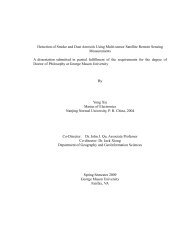Sample A: Cover Page of Thesis, Project, or Dissertation Proposal
Sample A: Cover Page of Thesis, Project, or Dissertation Proposal
Sample A: Cover Page of Thesis, Project, or Dissertation Proposal
Create successful ePaper yourself
Turn your PDF publications into a flip-book with our unique Google optimized e-Paper software.
delayed children (Crain-Th<strong>or</strong>eson & Dale, 1999). These techniques in particular may also<br />
prove the most cost- and time-efficient techniques f<strong>or</strong> increasing children‘s literacy skills<br />
f<strong>or</strong> several reasons. First, dialogic reading techniques have typically been implemented<br />
during shared st<strong>or</strong>ybook reading, a commonplace practice within preschool contexts.<br />
Further, research has demonstrated that teacher-child book reading contributes to<br />
children‘s <strong>or</strong>al language development via teacher-child discourse (Makin, 2003) and that<br />
Head Start teachers engaged children in richer and m<strong>or</strong>e sensitive and responsive<br />
communication during book reading when compared with outer classroom activities (i.e.,<br />
free play and meal time; Gest, Holland-Coviello, Welsh, Eicher-Catt, & Gill, 2006).<br />
Thus, enhancing the common literacy practice <strong>of</strong> classroom st<strong>or</strong>ybook reading can help<br />
teachers to enhance the development <strong>of</strong> <strong>or</strong>al language skills while providing them m<strong>or</strong>e<br />
time and resources f<strong>or</strong> implementing additional literacy programming to enhance<br />
phonological processing skills and print knowledge, the remaining two <strong>of</strong> the three key<br />
emergent literacy skills (Lonigan, 2006).<br />
In summary, previous research has determined that dialogic reading techniques<br />
are effective tools f<strong>or</strong> increasing children‘s sh<strong>or</strong>t-term vocabulary skills across varied<br />
contexts and within populations <strong>of</strong> varying socio-economic status. Beyond their<br />
versatility, dialogic reading techniques specifically target children‘s <strong>or</strong>al vocabulary<br />
skills, emergent literacy skills that have been related to phonological awareness and<br />
listening comprehension, that have been found to be predictive <strong>of</strong> reading comprehension<br />
skills (Senechal et al., 2006), and that are prerequisites f<strong>or</strong> reading ―grade level‖ books<br />
(Biemiller, 2006). Acc<strong>or</strong>ding to Biemiller (2006), much m<strong>or</strong>e time is dedicated to<br />
17




![[Sample B: Approval/Signature Sheet] - George Mason University](https://img.yumpu.com/21978828/1/190x245/sample-b-approval-signature-sheet-george-mason-university.jpg?quality=85)

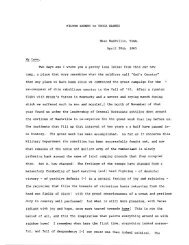
![[Sample B: Approval/Signature Sheet] - George Mason University](https://img.yumpu.com/18694905/1/190x245/sample-b-approval-signature-sheet-george-mason-university.jpg?quality=85)
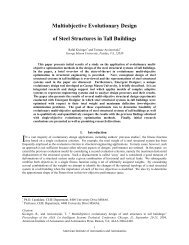

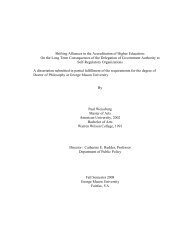
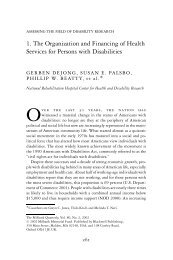
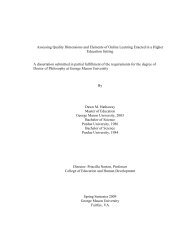
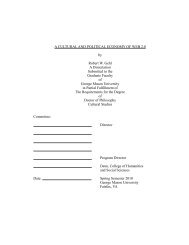
![[Sample B: Approval/Signature Sheet] - George Mason University](https://img.yumpu.com/18694552/1/189x260/sample-b-approval-signature-sheet-george-mason-university.jpg?quality=85)
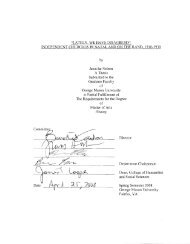
![[Sample B: Approval/Signature Sheet] - George Mason University](https://img.yumpu.com/18694474/1/190x245/sample-b-approval-signature-sheet-george-mason-university.jpg?quality=85)
